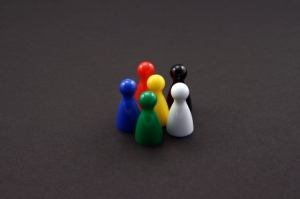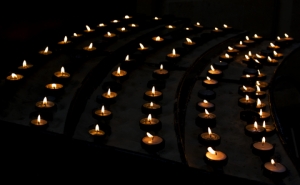THE MAD HATTERS AT THE TEA PARTIES
 You know, with all the ranting and raving that runs the airways these days, the predictably controversial talking heads of radio along with their shouting and outright rude counterparts on television “news” (and I do use the word lightly) programs, one would think we have become a nation of adamant nonsense. What I hear sounds more like the Red Queen in Alice in Wonderland and less like the lofty ideals imagined by our Forefathers (and Mothers) . The Red Queen ordered shrilly, for any provocation or for none at all, the command “Off with their heads!”… before finding out whose head or why. It was and is a little scary.
You know, with all the ranting and raving that runs the airways these days, the predictably controversial talking heads of radio along with their shouting and outright rude counterparts on television “news” (and I do use the word lightly) programs, one would think we have become a nation of adamant nonsense. What I hear sounds more like the Red Queen in Alice in Wonderland and less like the lofty ideals imagined by our Forefathers (and Mothers) . The Red Queen ordered shrilly, for any provocation or for none at all, the command “Off with their heads!”… before finding out whose head or why. It was and is a little scary.
So please let us not confuse our diverse nation with its 50 states and about 310 million individuals and their variant needs and goals with the so-called Patriots, continuing to foam at the mouth, who either:
A. Stir up the pot using self aggrandizing slander of anyone or anything that SEEMS to oppose their fanatically held sound bite views, with the nuance, subtlety, and thoughtfulness of a brick through a plate-glass window. I will not mention any of these personalities by name as I do not want to give them any more free press than they already get.
 B. This group is similar to those of the above, except for instead of making millions by being media pushers, they are politicians. Sure, money and fame are two of their goals, but their drug of choice is power and staying in it, no matter the cost or without care to their constituency, that has them shouting, “Foul!” to any idea that “appears” to come from the other side of the aisle. I say “appears”, because as the non-contrarian media continues to do its job, we find many of these ideas were first proposed by them!!
B. This group is similar to those of the above, except for instead of making millions by being media pushers, they are politicians. Sure, money and fame are two of their goals, but their drug of choice is power and staying in it, no matter the cost or without care to their constituency, that has them shouting, “Foul!” to any idea that “appears” to come from the other side of the aisle. I say “appears”, because as the non-contrarian media continues to do its job, we find many of these ideas were first proposed by them!!
C. Which leads us to the last, and most unfortunate of all of the screaming mimis, more than a few (although not all) Tea Party members. When our Boston revolutionaries threw that tea into the harbor, they too were as mad as hell and weren’t going to take it anymore. Luckily for them, they didn’t have groups A and B using them as pawns and puppets for their own selfish ends. Many of the members of the Tea Party have legitimate concerns and articulate them, if not convincingly, at least soundly.
But too many have joined a movement, fiery and passionate, that perhaps gives them a sense of purpose and connection, but it is more like a “loud gong signifying nothing.” They are being used by those feeding them alarming bits of information WITHOUT CONTEXT. The somewhat sly and charismatic rabble rousers, rich and powerful, know that it is Fear and not Fact that motivates a mob.
Mark Twain cleverly defined a Patriot as “The person who can holler the loudest without knowing what he is hollering about.” How true, wise words from our favorite American humorist. Let’s heed them. Except for the unavoidable and universal childhood stage that we all must go through and that hopefully passes with age (not dubbed “the terrible twos” for nothing), NO should be something more than a knee jerk reaction to any new idea. Might it be more patriotic, never mind more helpful, to learn to curb our childish impulses to respond to anything, reasonable or not, with NO?
 We may very well be a nation of natural-born contrarians. I love that we can argue about things that matter, in private and in public. It’s sometimes fun to argue just for argument’s sake to pass the time with friends and family. (Although it’s annoying to be with those who seem to take the opposite opinion in every discussion). Just the same, we are blessedly free. With that comes the responsibility to think, to openly weigh both sides of an argument, to be willing to change our opinions.
We may very well be a nation of natural-born contrarians. I love that we can argue about things that matter, in private and in public. It’s sometimes fun to argue just for argument’s sake to pass the time with friends and family. (Although it’s annoying to be with those who seem to take the opposite opinion in every discussion). Just the same, we are blessedly free. With that comes the responsibility to think, to openly weigh both sides of an argument, to be willing to change our opinions.
So, let’s go to our tea parties and leave the mad hatters with Alice; they may be exciting but they are too damn exhausting.


